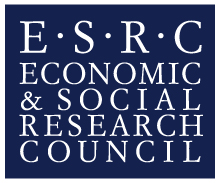PEDAL Hub resource

Bridging the gap between research and practice is a perennial challenge for academics and practitioners. Researchers at the Faculty of Education’s Centre for Research on Play in Education (PEDAL) used the ESRC Impact Acceleration Account (IAA) to develop PEDAL Hub, a new online resource designed to make the latest research accessible to everyone with an interest in play.
PEDAL Hub is a new online resource to share play research, policy and practice from around the world. Launched in 2019, PEDAL Hub is a growing collection of papers, reports, policy and practical information for teachers, parents and policy-makers who want to use new research to support children at school and at home.
“The idea is to provide a resource on play, with information and research about play for a broad audience, including parents, teachers and child-care professionals,” says Paul Ramchandani, Cambridge’s first Professor of Play. “Any parent, teacher or early-years professional curious about the evidence for the importance of play can come to PEDAL Hub, find something useful and use it.”
We take as given that play helps children learn as well as bringing them happiness, but the benefits of human playfulness have been surprisingly under studied, so when PEDAL (the Centre for Research on Play in Education) opened at the Faculty of Education in 2015 thanks to funding from the LEGO Foundation, it was breaking new ground.
It was the coming together of researchers through PEDAL that sowed the seeds for PEDAL Hub, says Dr Marisol Basilio, a research associate at the Faculty of Education. “Once PEDAL got up and running, we realised that we needed a new way to share with the world rigorous scientific research on children’s play,” she explains. “The effort was focussed on making scientific literature on play available to a wider audience in a searchable – and approachable – way.”
Basilio and her colleagues found out about IAA funding from the Faculty’s research administrator, who supported their application and helped arrange meetings with the University’s Research Office. And because Basilio’s own research is also funded by the ESRC, they were encouraged to build synergies that maximised the impact of her research grant.
In a field where opinions frequently outnumber and outcompete evidence, Ramchandani believes that PEDAL Hub is important. “Everyone has views about play – where it fits and whether or not it’s important – and much of that conversation stems from people’s personal beliefs and experience,” Ramchandani says. “But because practice impacts children and family life, we should be basing decisions on best evidence. Part of PEDAL’s mission is producing research to answer those key questions, and PEDAL Hub is part of that.”
Being a comprehensive resource on all things play is beyond the scope of PEDAL Hub. Instead, it will host selected research papers, reports, policy documents and practical resources, as well as play pieces – short summaries of new research written by experts – focussing on curating high-quality research and adding value by distilling the evidence into simple, practical messages for a broad audience.
“I see our role as ensuring that people can access high-quality information about play, and educate themselves if they want to, because there’s a gap there,” he says. “We’re aiming to distill key points in the most accessible way so that everyone can get to grips with key ideas and thinking around play, and we’ll be regularly adding new information to PEDAL Hub as it grows and evolves.”
The IAA enabled the PEDAL team to develop and define PEDAL Hub’s content and to fund the technical support needed to build its search engine, and PEDAL Hub now has ongoing support from the LEGO Foundation. “We’re at an exciting stage,” Ramchandani concludes. “The IAA acted as a catalyst – it helped facilitate the project in a way that would not have been possible otherwise. Now we have ongoing support to grow and maintain PEDAL Hub, I hope it will become a powerful and flexible way to engage with parents, teachers and policy makers and get the messages out there.”
| ESRC IAA Impact Fund Project: | PEDAL Hub – an online free searchable database of international play research, policy and practice. |
| Project Investigators: | Dr David Whitebread and Dr Marisol Barisio (Faculty of Education) |
| Partner Organisations: | Lego Foundation |
| Project duration: | March 2017 - August 2017 |
This project was funded by ESRC Impact Acceleration Account 2014-2019 (ES/M500409/1)

